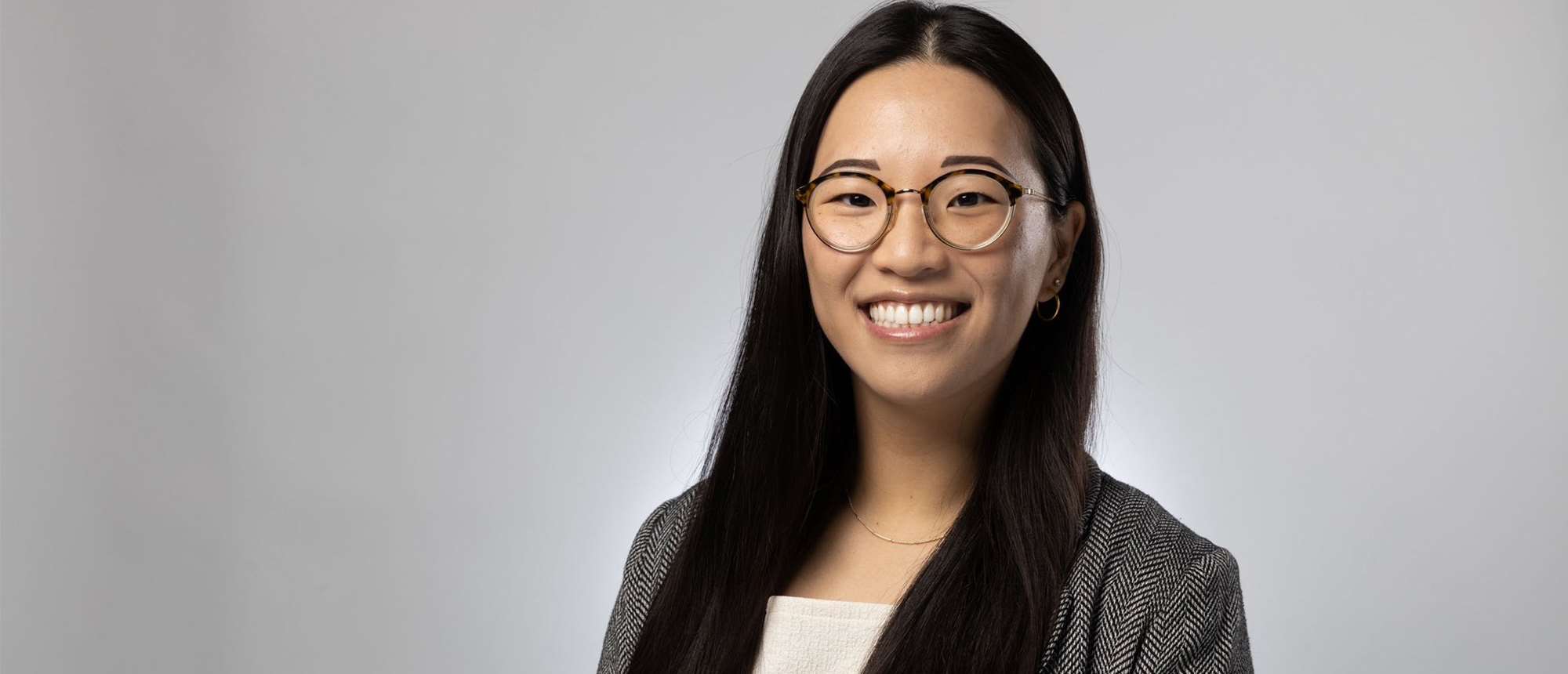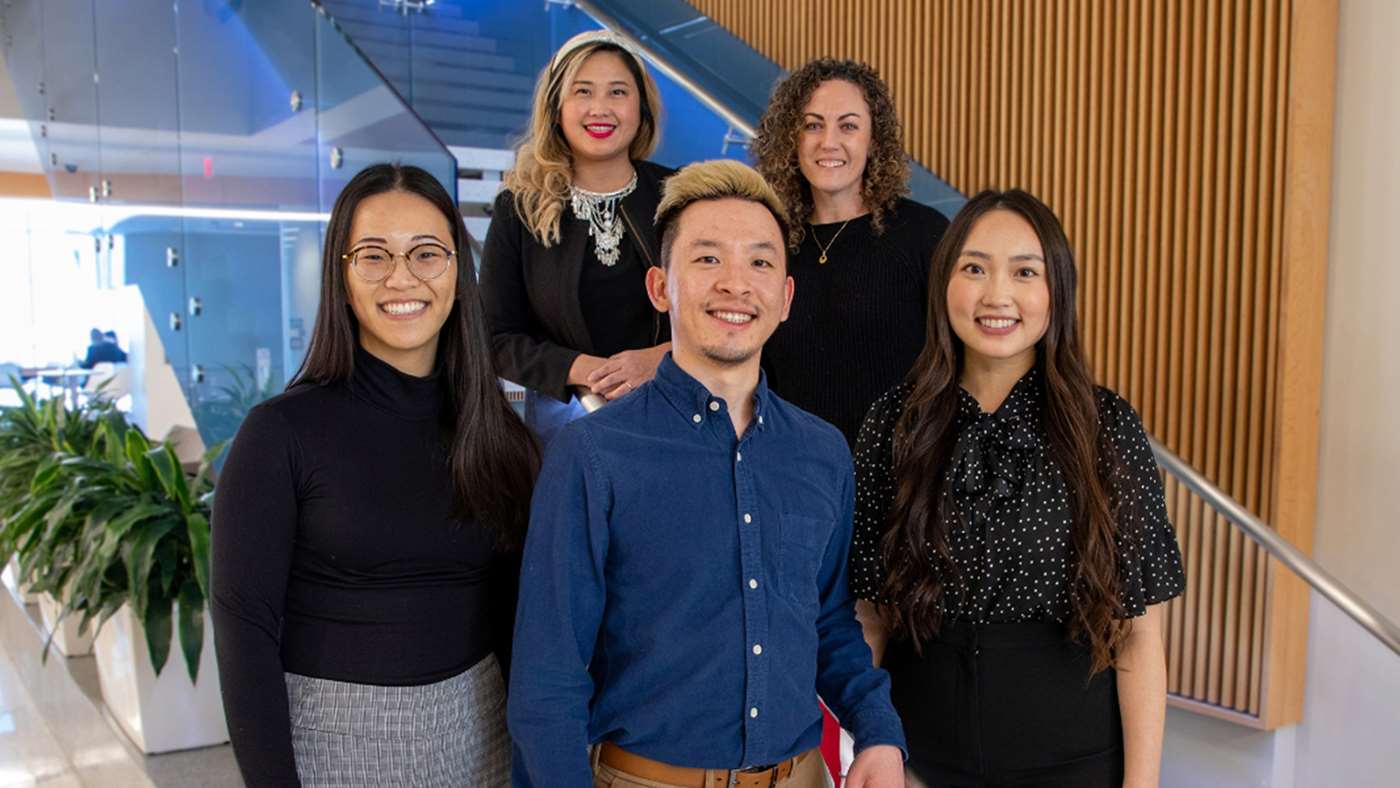MCW Student Dedicated to Improving Care for Diverse AANHPI Populations

Joyce Lee, a fourth-year medical student at the Medical College of Wisconsin (MCW), believes there’s an imperative for the public to learn about the extreme diversity of Asian American, Native Hawaiian and Pacific Islander (AANHPI) populations, particularly within the scope of healthcare and public health.
“We speak over 100 languages and come from more than 100 countries,” she says.
 Something else that’s not well understood by the public, according to Lee, is the health disparities that exist within these populations, each as diverse as the countries themselves. Lee says the narratives about these populations tend to focus on groups that have a higher socioeconomic status, a result of immigration policies that welcomed those who were more educated.
Something else that’s not well understood by the public, according to Lee, is the health disparities that exist within these populations, each as diverse as the countries themselves. Lee says the narratives about these populations tend to focus on groups that have a higher socioeconomic status, a result of immigration policies that welcomed those who were more educated.
“We forget about the other AANHPI populations who are more socially disadvantaged, come from a lower socioeconomic status, and who also have poorer health,” Lee says. “We really want to show and educate future healthcare providers about the different disparities that exist in their communities, and that we’re not just a monolithic group.”
Born in Tainan, Taiwan, and emigrating to east Los Angeles at the age of 8, Lee is leading the charge to raise awareness on these and other issues as the national president of the Asian Pacific American Medical Student Association (APAMSA). APAMSA is a national student-run nonprofit committed to addressing health challenges of AANHPI populations. The organization has over 4,500 members in more than 165 active chapters spread across nine regions.
Lee first became involved with the group 10 years ago as a freshman at the University of California San Diego where she co-founded the pre-medical chapter. She stayed involved with the group as a general member while completing her master’s in bioethics at Columbia University in New York and became involved with the local chapter at MCW as a medical student.
Along the way, she served as the MCW chapter’s co-president and on the national board as a regional director, membership vice president, and eventually as the national president.
 “For me this is special because it came full circle,” Lee says.
“For me this is special because it came full circle,” Lee says.
MCW has a long history with the group. Retired MCW professor B U.K. Li, MD, was a co-founder of the national APAMSA and served as a longtime advisor for the MCW chapter. He continues to be heavily involved with APAMSA on the alumni advisory board, with which Lee works closely (pictured right).
In Wisconsin, which has a large Hmong population, she and other members of MCW APAMSA have worked with the Milwaukee Consortium for Hmong Health, Hmong American Peace Academy and the Hmong American Friendship Association to organize health screenings for the local communities and educational events to encourage youths to become involved in medicine. Another major initiative of APAMSA has been to partner with Be the Match and encourage the public, particularly AANHPI and other minority individuals, to join the National Marrow Donor Program.
According to Be the Match, the likelihood of a white individual finding a bone marrow match is 79% compared to just 38% for Southeast Asians and 43% for Native Hawaiian and Pacific Islander individuals.
 “AANHPI populations generally have one of the hardest times finding a match for a bone marrow donor, so we highly encourage the general population to sign up,” she says. “MCW has traditionally done very well in enrolling their students and other staff and faculty on to the registry.”
“AANHPI populations generally have one of the hardest times finding a match for a bone marrow donor, so we highly encourage the general population to sign up,” she says. “MCW has traditionally done very well in enrolling their students and other staff and faculty on to the registry.”
In her leadership role as national president and with the support of nine vice presidents who oversee seven branches, Lee is responsible for helping the organization synthesize projects, collaborate on events, support local chapters and provide feedback on how to advocate for AANHPI populations while helping the organization grow.
One of the projects partnered with APAMSA that Lee is particularly passionate about is the Health Advancement for Asian Pacific Islanders through Education (HAAPIE) initiative. Lee, alongside two of her classmates at MCW (Ming Lin and Iaong Vang), and two faculty advisors (Dr. Kajua Lor and Dr. Lana Minshew) created and launched an online curriculum about AANHPI health targeted towards medical students and other health learners and professionals.
APAMSA also successfully launched a membership service last year that will help support scholarships and other activities, Lee adds.
In terms of her motivations for her efforts, Lee says she wants to continue giving back to her communities. As she moved around the country, she saw the many different challenges her communities faced, especially here in Wisconsin.
“In Milwaukee it is important to me in the sense that I really want to help other non-Asian folks understand some of the challenges that AANHPI communities experience in healthcare and try to dismantle that and improve the healthcare of our population in general,” she says.

In addition to her community work, Lee hopes to also become a neurologist who specializes in neurocritical care or vascular/stroke care, which she says is another way to give back to her community.
“I think one of the big things about community outreach is talking about the importance of stroke and ways to prevent them,” she says. “I am always looking forward to sharing the wealth of information with the AANHPI population.”
Resources



